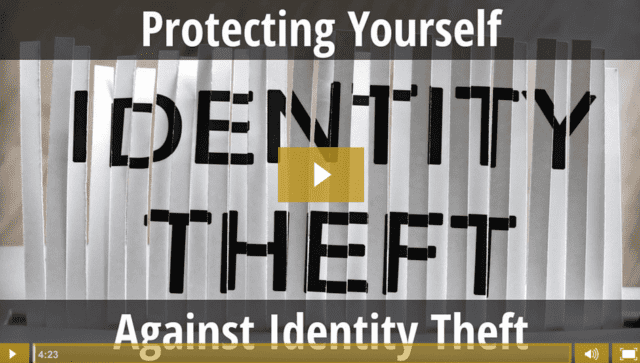Every day you hear about another security breach of a company that accepts payments, prompting all of its’ customers to worry about their identity. Turn on the news, and you’ll hear that identity theft is on the rise. Let’s face it – identity theft is a real concern for everyone. According to the Federal Trade Commission, 9.9 million people a year are affected by identity theft, and every minute, another 19 people have their identity stolen in some way.
Identity theft can take several different forms. It happens when someone uses your personal information without your permission. With your name, address, social security number, and date of birth, a thief can open new lines of credit, steal money from your bank accounts, get medical care, and even get a job.
Follow these steps to protect yourself and your loved ones from identity theft.
- Use a cross-cut shredder to shred all documents with your personal information: bank statements, credit card offers, anything with your address on it.
- Encrypt any emails or files that have your personal information before you send it electronically.
- Use and update computer firewalls, anti-virus software, and anti-spyware software. Without these, you’re open to having your information stolen while you’re on your computer.
- Use strong passwords. “1234” and “password” are awful passwords. Don’t use your children’s name or your mother’s maiden name. The strongest passwords combine letters, numbers, and special characters.
- Change your password frequently. Don’t repeat your former passwords. They become too easy to guess after a while.
- Avoid phishing scams. Don’t open suspicious emails, and don’t click links in those emails. Your bank, credit card company, or any other business you work with won’t send you an email asking you to give them your personal information (address, passwords, etc.) again. They already have that information.
- Check your credit reports at least twice a year. You can receive a free credit report once a year from the three major credit reporting agencies: Experian, TransUnion, and Equifax.
- Keep your social security number to yourself. Don’t carry your card in your wallet.
- Consider adding identity theft protection to your homeowner’s insurance. It’s an add-on product that can help you get through the legal process if your identity is stolen and can monitor your credit reports and other records to look for potential signs that your identity has been stolen before too much damage has been done, if any.
While there are plenty of things you can do to protect your identity, it helps to know that you’re covered if the worst happens. Using your homeowner’s insurance to help protect you is a great way to take some of the stress out of the situation and feel confident that no matter what happens, you’re not alone in this.
If you’d like to discuss adding identity theft protection to your homeowner’s policy, contact Charlotte Insurance today.

